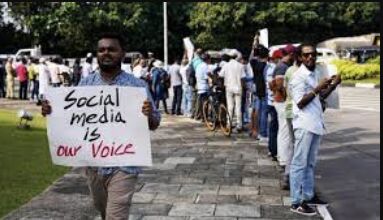Sri Lanka's Controversial Online Safety Bill Sparks International Outcry over Freedom of Speech
Sri Lanka's Parliament passes controversial Online Safety Bill, sparking criticism from rights groups and tech giants. Critics warn of stifled free speech and negative impact on digital economy growth.
Sri Lanka’s Parliament has passed a controversial Online Safety Bill, which has sparked criticism from rights groups, activists, and opposition politicians who allege that the government is using it to stifle freedom of speech in the run-up to parliamentary and presidential elections this year. The bill was passed with a majority of 108-62 votes and proposes jail terms for content deemed illegal by a five-member commission. Social media platforms such as Google, Facebook, and X will also be held accountable for such content on their platforms.
Sad day for #HumanRights, #freedoms & #democracy in #SriLanka. Ruling party uses its majority to pass draconian #OnlineSafetyBillLK despite major concerns raised by #lka citizens, civil soc & international tech cos. Beware: #CyberNannyState is rising! https://t.co/2p3tUSsFh6
— Nalaka Gunawardene (@NalakaG) January 24, 2024
The Asian Internet Coalition, which includes tech giants such as Apple, Amazon, Google, and Yahoo, has criticized the bill, warning that it could undermine potential growth and foreign direct investment into Sri Lanka’s digital economy. The New York-based Human Rights Watch described the bill as repressive and warned that it would create broad and vague new speech-related offenses punishable by lengthy prison terms. Public Security Minister Tiran Alles, who introduced the bill, emphasized that it aims to address problems related to online fraud, abuse, and false statements that threaten national security and stability.
He stated that there were over 8,000 complaints related to online crimes last year, including sexual abuse, financial scams, cyber harassment, and data theft. However, critics argue that the bill grants arbitrary powers to the commission, potentially leading to the suppression of free speech. Opposition politicians and activists have protested against the legislation, arguing that it is a threat to democracy and will have a severe negative impact on expanding e-commerce and creating jobs for the youth in Sri Lanka.
It is also noted that President Ranil Wickremesinghe, who came to power after months-long protests over economic turmoil and poor governance, has been accused of stifling dissent in the past. As the country grapples with its worst economic crisis, it is facing severe shortages of food, fuel, and other necessities, leading to public dissatisfaction and protests. With the presidential election set to be held later this year, the passage of this bill has raised concerns about the potential impact on freedom of speech and the growth of Sri Lanka’s digital economy.





